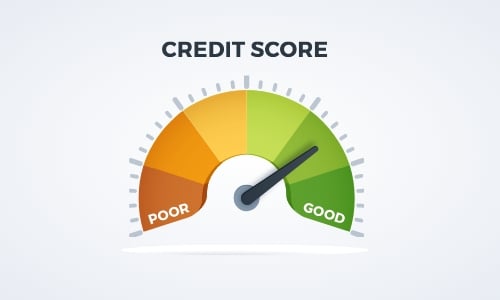Credit Do's and Don'ts
60 percent of Americans have checked their credit report in the past year.

Eighty-five percent of Americans are aware that they have access to a free credit report each year and 60 percent have checked their credit report within the past 12 months, according to a new survey released by the American Bankers Association.
“People know their credit history is important, but it's equally important for them to understand how to access and improve their histories, correct any errors and avoid falling into any traps,” said Molly Wilkinson, executive director of ABA's Card Policy Council. “The more consumers know about their own credit history, the better they can position themselves for lower rates when applying for loans.”
The recent survey also found that there is some confusion among U.S. consumers about the differences between credit scores and credit reports, with nearly half (44 percent) saying they believe credit scores and credit reports are different names for the same thing. Consumers are slightly more likely to have recently checked their credit score, with two-thirds (66 percent) saying they have checked their credit score within the past year.
“Your credit score is akin to your cumulative GPA, while a credit report more closely resembles your grades from every report card over the past seven years,” said Wilkinson. “Credit scores reflect the information in an individual's credit report, which is why we urge consumers to check their credit report for accuracy at least once a year.”
For consumers interested in finding out more about their credit history, Wilkinson noted that the first place they should look is their credit report. As mandated by federal law, each person is entitled to a credit report from each of the three major bureaus each year. Customers can get their yearly free credit reports at AnnualCreditReport.com.
Credit scores are reflective of a person's creditworthiness and are based on their credit reports, which indicate whether a person pays their bills on time. Lenders use a consumer's credit score to decide whether to lend them money and at what rate.
Consumers receive their credit score when they apply for a mortgage, if they are turned down for credit or if a bank used their credit score to determine their interest rate. Some banks will supply their customers with a complimentary credit score from one of the major credit bureaus-Experian, TransUnion and Equifax-or consumers can pay to obtain their score directly from a credit bureau.
If you are having trouble making payments, pay only the minimum balance, use cash advances to fund daily living expenses or transfer balances frequently, you might be in the credit “danger zone.” Talk to a non-profit financial counseling organization like the National Foundation for Credit Counseling ( www.nfcc.org) to regain control of your finances.
If you suspect that your identity has been compromised, call your bank and file a complaint with the Federal Trade Commission at 1-877-ID-THEFT (1-877-438-4338) or www.ftc.gov/idtheft.
Equal Housing Lender. Member FDIC